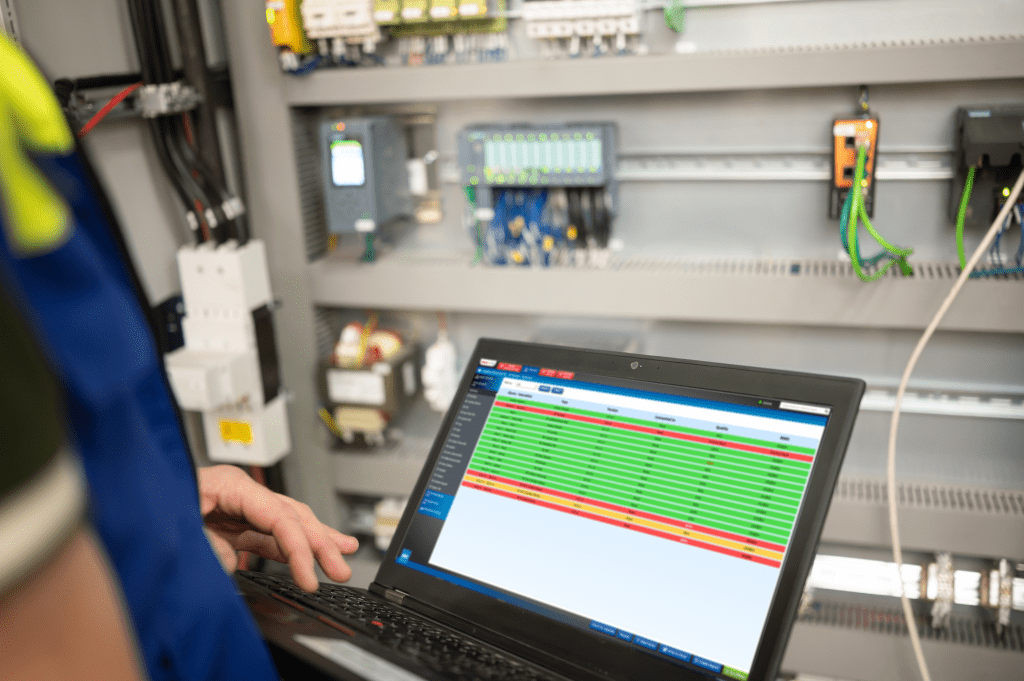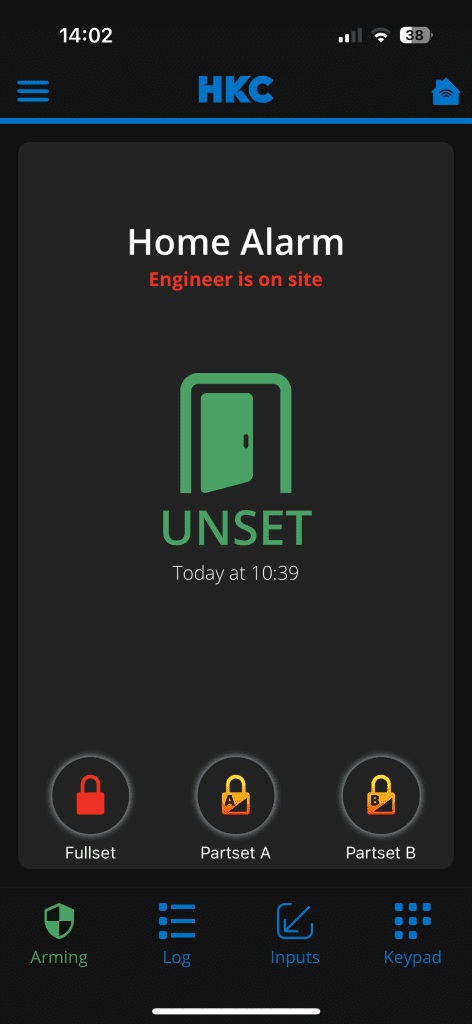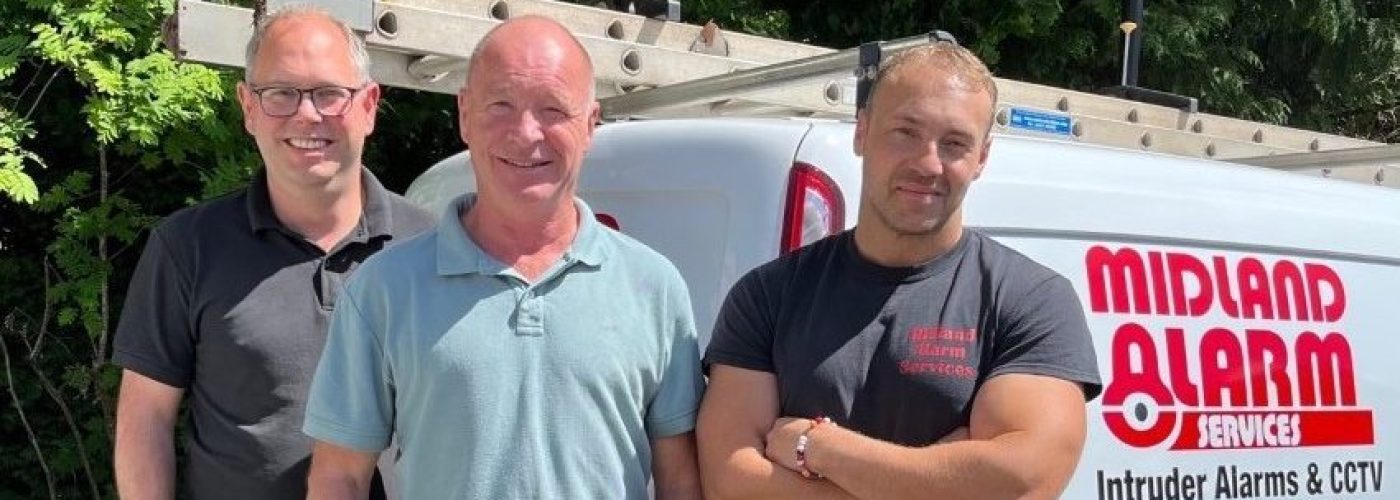Founded in 1987, Midland Alarms is a family-run security business based in the Midlands, specialising in residential alarm systems. Over the years, they have carved out a unique niche, working closely with housebuilders such as Taylor Wimpey, Persimmon Homes, Redrow, and Cala Homes to provide intruder alarms as standard in new-build properties.
With thousands of installations to date, Midland Alarms has built a strong reputation for reliability, customer service, and technical expertise. But in recent years, the company has taken its business model to the next level, using HKC’s SecureComm cloud platform and the introduction of a recurring revenue stream through customer subscriptions.

The challenge: Moving beyond bell-only systems
For decades, Midland Alarms focused on fitting traditional bell-only systems, often unmonitored and lacking smart features. While these types of systems were the norm, these installations offered no recurring income and minimal long-term customer engagement.
Steve Wyer, the founder of Midland Alarms, recognised the limitations: “We’d install a bell-only system and might not hear from that customer again for 20 years. There was no ongoing relationship – and no additional value being built into the business.”
As modern security technology evolved, Steve saw an opportunity to pivot, moving away from single-payment jobs and towards a more sustainable, service-based model.
The solution: HKC’s SecureComm and SmartLink
In 2014, Midland Alarms discovered HKC’s SecureComm platform, which was a game-changing moment for the business. The system’s SmartLink app allowed customers to monitor and control their alarms remotely, while enabling Midland Alarms to offer remote diagnostics and support.
“The first time Richard from HKC showed me SmartLink, I was blown away. It connected instantly, worked over Wi-Fi, and just made sense. We knew it was the future.”
This allowed Steve to begin offering subscription-based services with real value to customers, rather than a one-off install. Not only could Midland Alarms improve customer experience, but they could also begin building a recurring revenue stream that enhanced the long-term viability and saleability of the business.
Building recurring revenue
Midland Alarms launched a tiered subscription model, using GoCardless to streamline monthly direct debits. They offered a range of subscription options for Wi-Fi only monitoring, monitoring with GSM backup, and also a ‘Full Service’ plan that includes monitoring, extended warranty, and battery replacement after 3 years.
These services were bundled with value-added support, including remote diagnostics, app access, and customer education, making it an attractive proposition.
“Most people don’t want to worry about changing batteries or figuring out alarm settings. With our ‘Full Service’ plan, they know we’ll take care of everything – and that includes remote support via SmartLink.”
Scalable and sustainable
The impact of adopting a recurring revenue model has been transformational for Midland Alarms. Customers tend to stay subscribed, not only because app-based control becomes part of their everyday routine, but also because of the added value built into the service, such as the promise of battery replacements after three years. This long-term commitment helps keep customers engaged well beyond the initial installation.
Financially, the move to monthly payments has brought a new level of stability to the business. Instead of relying on one-off projects, Midland Alarms now benefits from a steady, predictable income stream. This has smoothed out the peaks and troughs that often characterise traditional installation work.
Operationally, the introduction of cloud-connected systems has made the business far more efficient. With remote access through SmartLink, engineers can resolve many issues without needing to visit site, saving both time and resources.
Perhaps most significantly, the shift to a service-based model has increased the overall value of the business itself. With hundreds of customers now on subscription plans, Midland Alarms has created an asset that can function independently of its founder. Steve explains: “If I ever wanted to sell the company, a buyer can see the systems work without me, and that the revenue will keep coming in.”
Educating the customer
A key to success has been demystifying the technology. Steve and his team train customers in simple, relatable terms, often positioning SecureComm as a smart, cost-effective alternative to traditional monitored systems:
“We ask customers: would you rather your alarm go off before or after the burglar gets in? HKC’s shock detectors and app connectivity mean it goes off before – and that’s the difference.”
Plus, as customers are already accustomed to app subscriptions like Netflix and Sky, the find the monthly fees completely acceptable and the benefits clear. “The app is so user-friendly, we spend minimal time at handover showing them how it works, and that’s usually enough. It’s just a couple of taps to set or unset the alarm, and people are so used to apps these days, they love having that control.”
Making the change
When asked what advice he would give to installers who are hesitant about adopting cloud-connected systems or recurring revenue, Steve said: “I would encourage any installer to seriously consider making the shift. Too many are still relying on outdated business models that require long hours and offer little long-term security.
“Introducing a service-based approach can improve work-life balance, add measurable value to the business, and create a more sustainable income stream.
“The market potential is significant – many homes still don’t have connected alarm systems, so there’s plenty of opportunity for those willing to adapt. It’s about staying ahead of the curve and building a business that’s ready for the future.”
For more information on HKC Security, visit www.hkcsecurity.com.

Building, Design & Construction Magazine | The Choice of Industry Professionals





